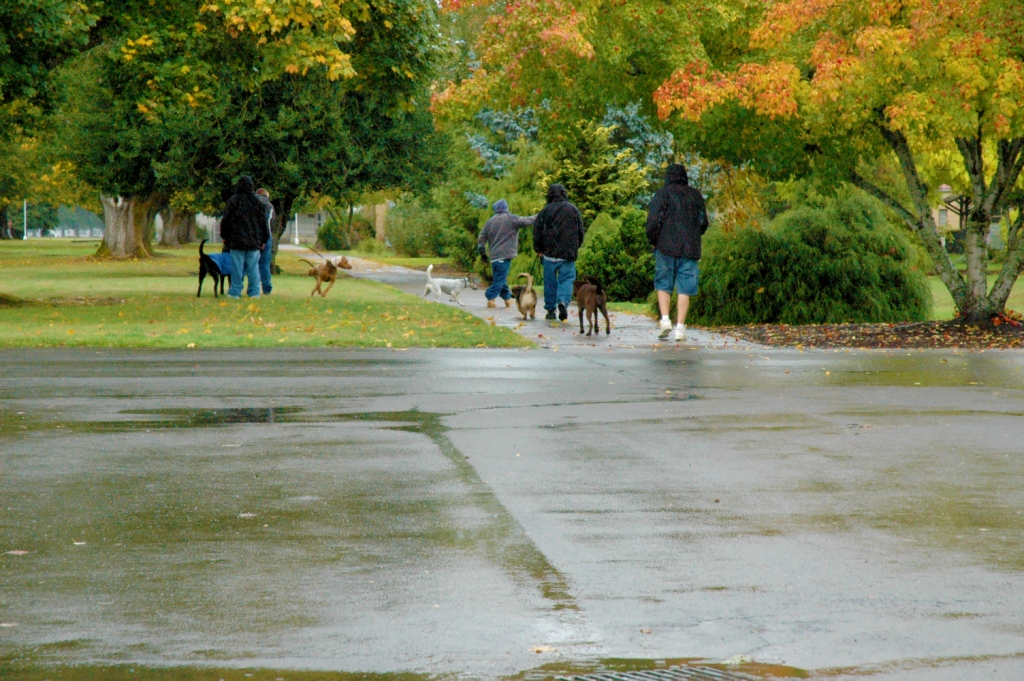Homeless Dogs + Incarcerated Youth = 25 years of success
Life for an incarcerated teenager is the picture of uncertainty: will he get caught in a cycle of repeat incarcerations, or will he somehow gain the skills and emotional maturity to live successfully on the outside?
A shelter dog’s life is uncertain too, even with the high adoption rates in our region.
For a quarter-century, one local nonprofit has brought these two populations together with groundbreaking results for both. Oregon-grown and nationally-recognized Project POOCH is celebrating 25 years of rehabilitating incarcerated youth while transforming “unadoptable” dogs into desirable companions.
“The human-animal bond is what we promote,” says Joan Dalton, founder of the Woodburn, OR-based nonprofit that matches youth at MacLaren Correctional Facility with dogs from local shelters. The facility houses and educates males under 25 who are convicted of crimes ranging from misdemeanors to the most serious felonies.
Dalton founded POOCH in 1993 while serving as vice-principal of Lord High School at MacLaren. At the time, there was a handful of programs that used the human-animal bond to rehabilitate adult prisoners, but, Dalton says, “Nobody had tried it with juveniles.” She risked nearly everything to pursue her vision, including her home, which she sold to launch the program — starting with just one youth and one dog.
How It Works
Individual youth are paired with a rescued dog and a professional dog trainer and behaviorist. For the youth, Dalton explains, one-on-one work with the dog often addresses the animal’s possible background of neglect, resulting in a strong therapeutic bond that, to date, has changed the lives of hundreds of dogs and young men. Dalton proudly points to the program’s zero recidivism rate. Impressive all by itself, the numbers are even more astounding considering that the national average is 25 to 40 percent.
To be eligible, youth offenders must meet rigorous requirements, including an interview, an exemplary institutional history, and no record of animal abuse. The program’s comprehensive syllabus teaches patience, compassion, and commitment, along with bookkeeping, computer skills, grooming and boarding operations. The project’s fundraising ventures raise money to support POOCH and other corrections programs serving dogs and at-risk youth, while also helping youth pay restitution and child support.
Along with learning the hard skills of running a business, POOCH participants experience social and emotional growth. “In the past, I used to not be concerned with much besides my own needs,” writes one anonymous youth. “But I realize this wasn’t very healthy for me. By working and being with these dogs, I find myself caring more and more about how they are and how they’re progressing in their training. I also think about how they’re doing every day that I’m away from them.”
As the program gained recognition, researchers took note of its success. In survey results, MacLaren staff reported improved respect for authority, social interaction, and leadership skills among POOCH participants. According to Sandra Merriam, PhD, of Pepperdine University, “Program youth interviewed reported that they felt they had changed and improved in the areas of honesty, empathy, nurturing, social growth, understanding, self-confidence and pride of accomplishment.”
The project yields equally important outcomes for the dogs. Upon completing their part in the program, the once “unadoptable” dogs graduate as desirable companions. “We do home visits,” Dalton says, to make sure it’s a good match, and then, “we do a trial overnight.”
Sometimes adoptive families send photos and updates on their dogs. “This is amazing,” Dalton says, and the youth love hearing how well their dogs have been trained. “This is a dog that would’ve been put down,” Dalton points out. “We really did make a difference.”
POOCH will celebrate its silver anniversary with a “Year of the Dog” fundraiser and benefit July 14 at Montgomery Park in Portland. Dalton says the festivities will include an appearance by the first young man to graduate from the now legendary program. Like the peers who would follow him, he has remained a free and productive member of society.
William Kennedy is a freelance writer who lives with his wife and daughter in downtown Eugene, Oregon. He's had many furry friends in his lifetime. Currently, he's tolerated by a black cat named Midnight.




